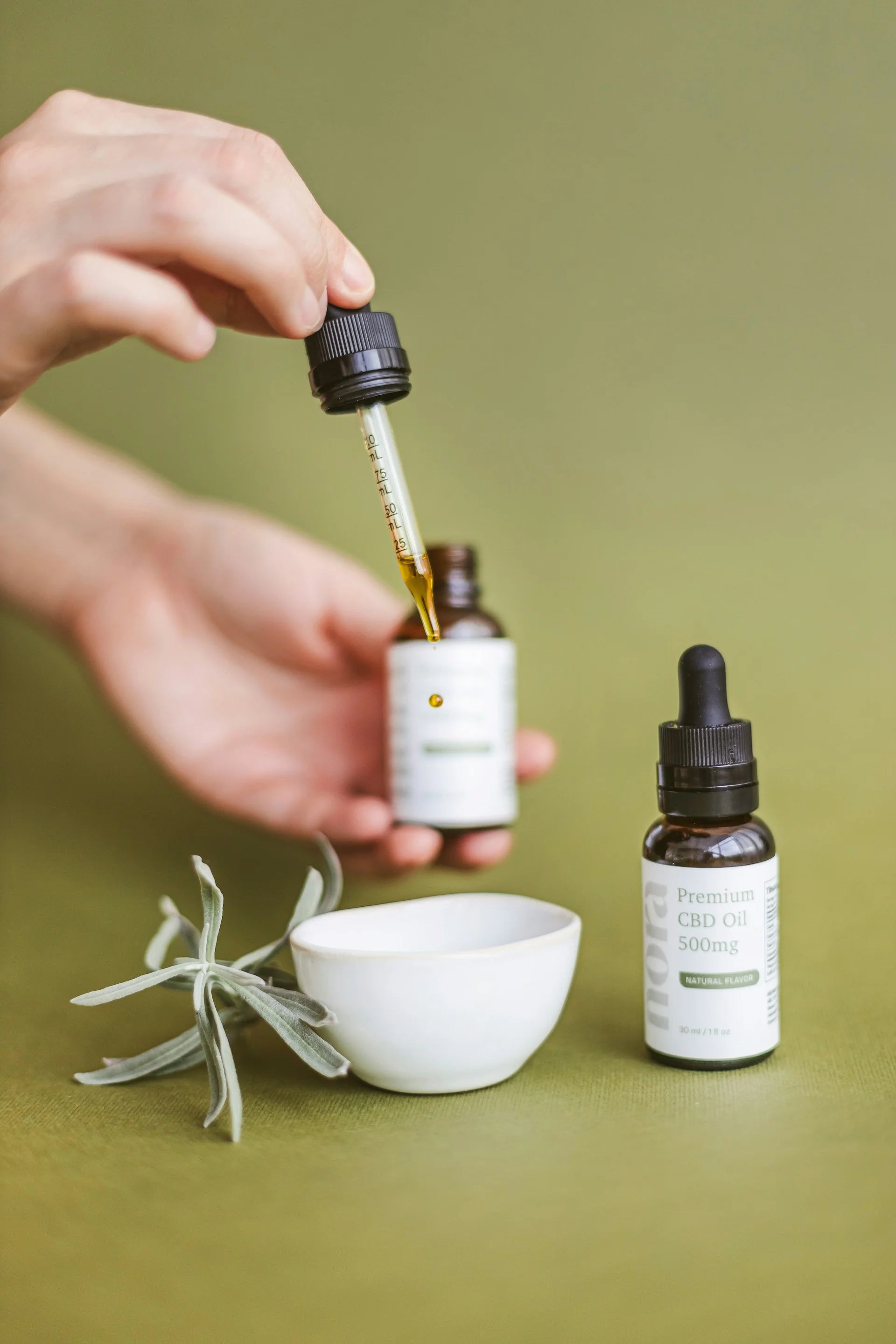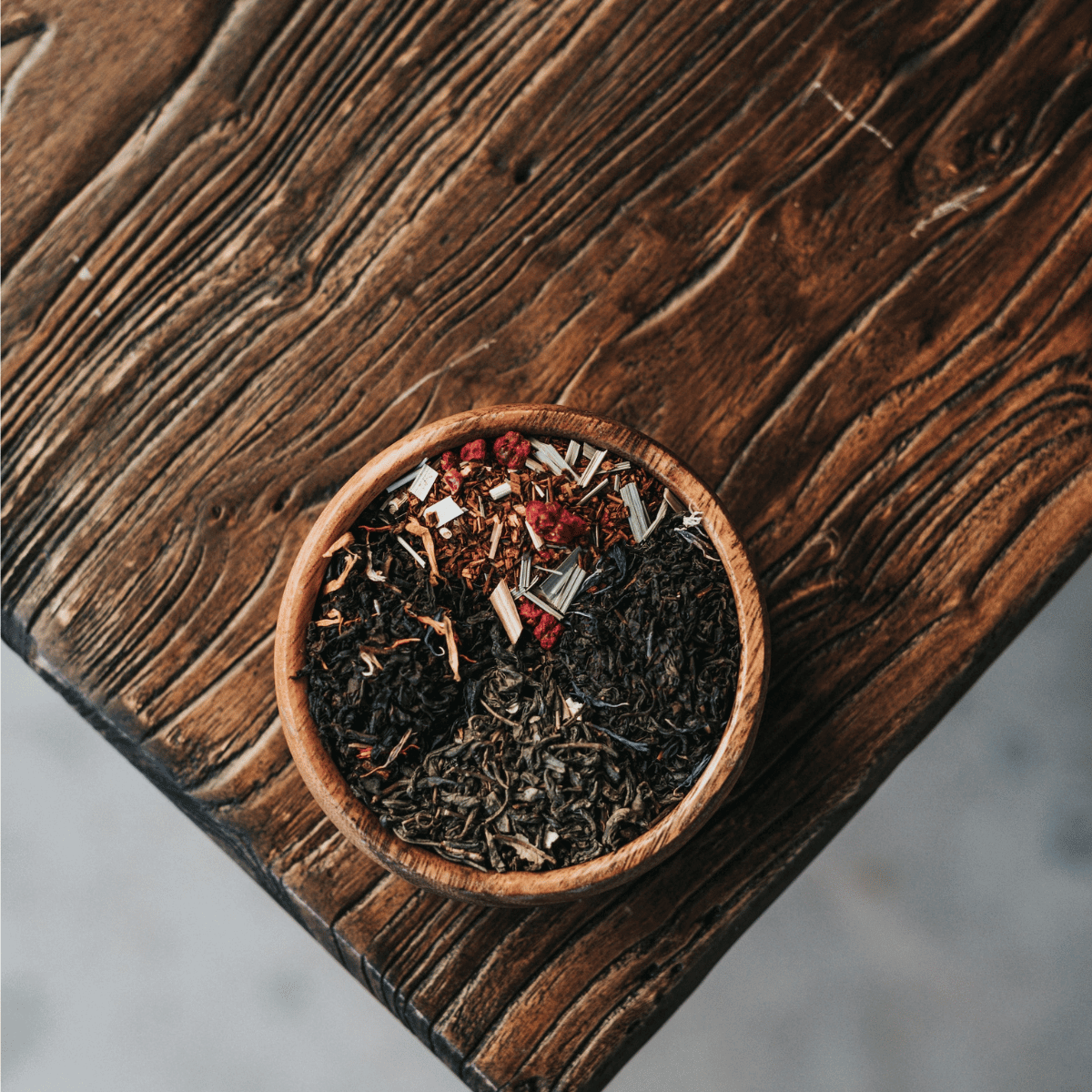What is tea exactly and how is it used nowadays?
Tea comes from the Camellia sinensis plant’s leaves and buds. It is consumed as a beverage in many cultures around the world, with some countries consuming it regularly, like Vietnam, and others consuming it sparingly.

Photo by Alice Pasqual on Unsplash
All teas start out as fresh leaves or buds that have been dried. They are then processed into loose-leaf tea or tea bags, which can be steeped in hot water or brewed.
Each type has unique characteristics based on how long they're left to oxidize during processing; if they're fermented before drying (which gives them their colour); how heavily they're rolled (which affects their texture); and whether they're made from single-origin tea leaves or a blend of different origins (which affects their flavour).
Tea has been a staple of the human diet for thousands of years. But you may not know that smoking tea is a fairly unique phenomenon that some people have been doing for hundreds of years. Many people consider smoking tea to be healthier than smoking tobacco because it doesn't contain nicotine or tar. However, like smoking anything, there are still risks associated with smoking tea because you're still inhaling smoke into your lungs.
What is the history of smoking tea?
The history of smoking tea is a fascinating one. It's believed that the first time people began to smoke tea was in China when they would burn pine needles and leaves and inhale their smoke through bamboo tubes. This was done to help medicate patients with lung diseases, but it eventually evolved into a recreational activity.
In later years, people began to brew tea leaves and add them to tobacco pipes. This created a new sensation for smokers: the combination of tobacco and herbal tea provided an unusual flavour that was not found in either one alone. The ritual of smoking tea continued through later dynasties and is still practiced today.
Why do people smoke tea?
Smoking tea is a popular pastime in recent years. It is more commonly thought of as a beverage, but it can also be smoked. Tea is a popular choice for those who want to kick their cigarette habit. Yet further research from the FDA is needed to determine whether smoking tea has any positive or negative health effects or dangers.
There are many different ways to smoke tea, but one popular method is to roll your own herbal cigarette with rolling papers and ground tea leaves. The leaves can also be smoked or inhaled through a pipe or bong. You can mix it with other smokable herbs such as Damiana, Lavender, Mint, Sage or Mugwort.
Benefits of smoking tea
Smoking tea is a traditional Chinese practice that has recently been gaining popularity in the West. It's a simple, delicious way to enjoy your tea, but there are some very real side effects rather than health benefits to smoking your tea.
Does smoking tea relax you?
Smoking tea may or may not relax you. The effect of smoking tea on your mood depends on the type of tea, how much you smoke it, and whether or not you're a habitual smoker.
Some people claim that smoking tea helps them relax or focus more clearly because of its caffeine content. However, there isn't enough research yet on this subject so we don't know exactly how effective this effect would be if it were true at all! You should then be wary of any charlatans saying the opposite!
Health effects of smoking tea
-
Anxiety
Smoking tea can cause anxiety, especially if you smoke it in large quantities.
-
Cognitive enhancement
The caffeine in tea has been shown to improve cognitive functioning and memory at low doses, but the effect is not significant enough to be useful as a nootropic agent.
-
Metabolism
Drinking tea may increase your metabolism by 3-8% over a 24-hour period, though the effect is small and unlikely to be noticed by most people.
-
Energy boost
Tea contains caffeine, which will give you an energy boost if you drink enough of it, but the same effect of smoking tea is not well supported by research or data.
Are the benefits the same between smoking and drinking tea?

Photo by Nataliya Vaitkevich from Pexels
The most obvious difference between smoking tea and drinking it is the risk of disease. Smoking can lead to cancer, lung disease, and heart trouble. Drinking tea, on the other hand, has been linked to a reduced risk of cardiovascular problems like stroke and heart disease in some studies, and some of them have antioxidant effects.
Aside from the risks of disease, there are other differences between smoking tea and drinking it as well. In addition to giving you cancer, smoking tea can also give you yellow teeth and bad breath.
Is it better to smoke tea or to drink tea?
When considering the benefits between smoking and drinking tea, it's important to remember that smoking isn't good for you in any situation because it damages your lungs and causes cancer. It has been found that smoking tea can cause adverse effects such as cancer and lung disease. However, there is no conclusive evidence that smoking tea directly causes these diseases. Drinking tea on the other hand has many benefits including helping you lose weight, and reducing stress levels while boosting energy levels!
Can tea get you high if you smoke it?
The effects of smoking tea are typically not as strong as those of smoking other substances, such as tobacco or cannabis.
However, it is important to note that because there is not a lot of research available on the effects of smoking tea, it is difficult to say for certain what kind of side effects one might experience from doing so.
Are teas safe to smoke?
If you're thinking about smoking tea, you might want to think again. While it's possible to get a high from burning tea leaves, the effects are more likely to make you sick than anything else.

Tea is made from the leaves of Camellia synesis, which contains caffeine and other alkaloids that can be harmful when consumed in large amounts or with certain substances like tobacco.
When you burn tea, you're releasing these compounds into the air releasing carbon monoxide—and they can get into your lungs and bloodstream through breathing or absorption through skin contact.
The effects of smoking tea are similar to those produced by smoking tobacco or marijuana: they include dizziness, nausea, vomiting and drowsiness.
Do you absorb caffeine or L-Theanine?
This is a question that many tea lovers have asked themselves, especially those who are trying to quit smoking. The answer is that you do absorb caffeine and get a caffeine boost when you smoke tea, but not L-Theanine. Some people might also wonder if smoking tea is addictive as smoking tobacco? Well, you might be happy to learn that no, smoking tea is not addictive. However, if someone experiences some kind of addiction to smoking tea, it can be easily treated.
Types of tea
There are many different types of tea, and each has its unique flavour. The best kind of tea to smoke depends on your taste and how much you want to spend. There are no teas that are better to smoke than others in terms of the effects you could experience. However, smoking green tea and smoking black tea are the two most popular kinds of tea used for smoking. This doesn’t mean you can’t try other types.
Is smoking tea more dangerous than cigarettes?
Smoking tea is not more dangerous than smoking cigarettes, but it is far more harmful to your health. Tea contains many carcinogens and other toxins, which are released into your body when you smoke it.
Smoking tea is not an effective way to quit smoking.
Smoking tea is a habit that has existed for centuries, but it has never been shown to help people quit tobacco. Even if people may consider it healthier because tea doesn’t contain tar or nicotine, smoking tea can be more dangerous than smoking cigarettes because the smoke contains more carcinogens. With that said, tea is a common substitute for smoking tobacco. Many people turn to tea to help them quit smoking cigarettes and move toward a more healthy lifestyle, by starting to smoke green tea cigarettes. But it is not proved as helpful as many people think it is.
If you want to quit smoking tobacco, you could look into something like herbal smoking blends that contains Mugwort or Rose Petals for example, which would be a better option.
Can you purchase tea cigarettes?
You can purchase tea cigarettes, but the question is whether you should.
Some people believe that smoking tea is a healthier alternative to smoking tobacco or menthol cigarettes. However, this is not true.
There are many negative side effects of smoking tea instead of cigarettes—like the fact that it leaves an unpleasant taste in your mouth when you stop smoking.
How to smoke tea?
Herbal blends are a great way to start your journey into the world of smoking tea. These blends contain herbs and flowers that are typically smoked for their unique flavour profiles. They typically have a distinct taste and smell that can be used to enhance the flavour of your favourite herb.
Conclusion - Can I Smoke Tea?
In conclusion, smoking tea is not a safe practice. Although some people may argue that it is not as harmful as other forms of smoking, it still presents a number of health risks and has no known benefits. Smoking tea can lead to lung cancer, throat cancer, and oral cancer. If you are currently smoking tea or considering starting to smoke tea, please consult a doctor before starting.
And here you go bud! You know everything about smoking tea.
You could also be interested in learning more about dry herbs vaporizers.
*This article is not to be interpreted as a statement of any form by Spliff but merely a compendium of information compiled from other sources. These statements have not been evaluated by Health Canada, FDA or any other regulatory body. Consult your doctor before ingesting or smoking any herbal product.*
WANNA LEARN MORE ABOUT TEA? BROWSE OUR SOURCE BELOW!
Ikka, T., Yamashita, H., Kurita, I., Tanaka, Y., Taniguchi, F., Ogino, A., Takeda, K., Horie, N., Hojo, H., Nanjo, F., & Morita, A. (2018). Quantitative validation of nicotine production in tea (Camellia sinensis L.). PLOS ONE, 13(4), e0195422. https://doi.org/10.1371/journal.pone.0195422
Khan, N., & Mukhtar, H. (2013). Tea and health: studies in humans. Current Pharmaceutical Design, 19(34), 6141–6147. https://doi.org/10.2174/1381612811319340008
Siegmund, B., Leitner, E., & Pfannhauser, W. (1999). Determination of the Nicotine Content of Various Edible Nightshades (Solanaceae) and Their Products and Estimation of the Associated Dietary Nicotine Intake. Journal of Agricultural and Food Chemistry, 47(8), 3113–3120. https://doi.org/10.1021/jf990089w
Carbone, D. (1992). Smoking and cancer. The American Journal of Medicine, 93(1), S13–S17. https://doi.org/10.1016/0002-9343(92)90621-h
Raymond Cooper (2012) Green tea and theanine: health benefits, International Journal of Food Sciences and Nutrition, 63:sup1, 90-97, DOI: 10.3109/09637486.2011.629180
Sinija, V. R., & Mishra, H. N. (2008). Green tea: Health benefits. Journal of Nutritional & Environmental Medicine, 17(4), 232–242. https://doi.org/10.1080/13590840802518785







Leave a comment
All comments are moderated before being published.
This site is protected by reCAPTCHA and the Google Privacy Policy and Terms of Service apply.